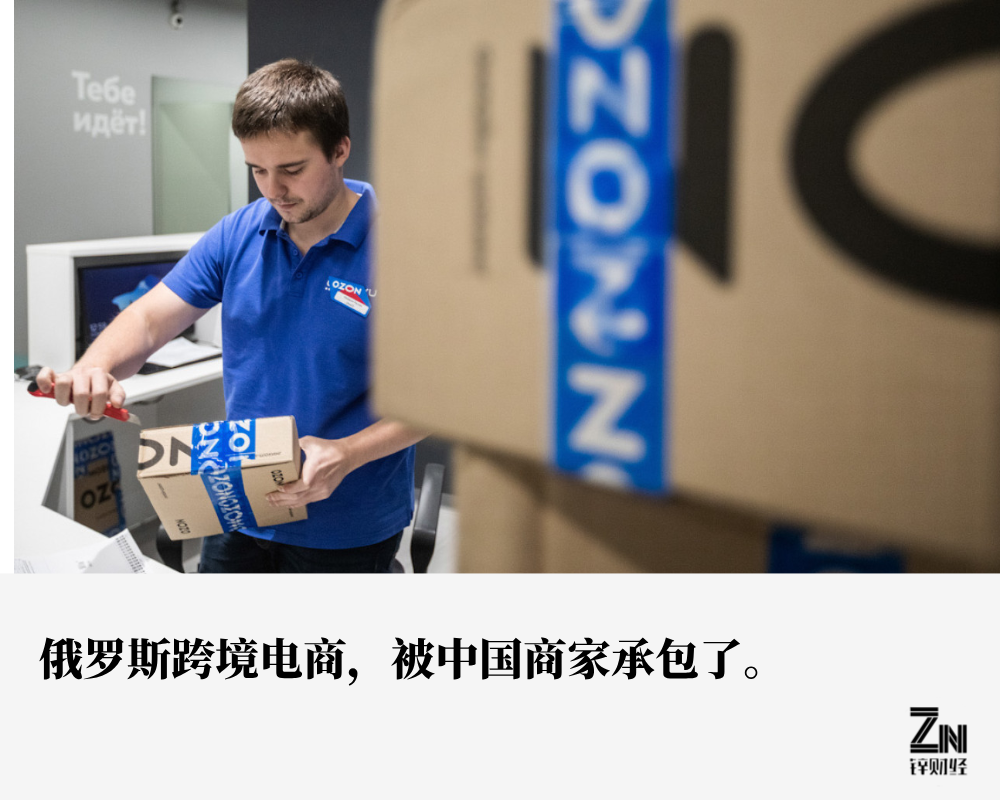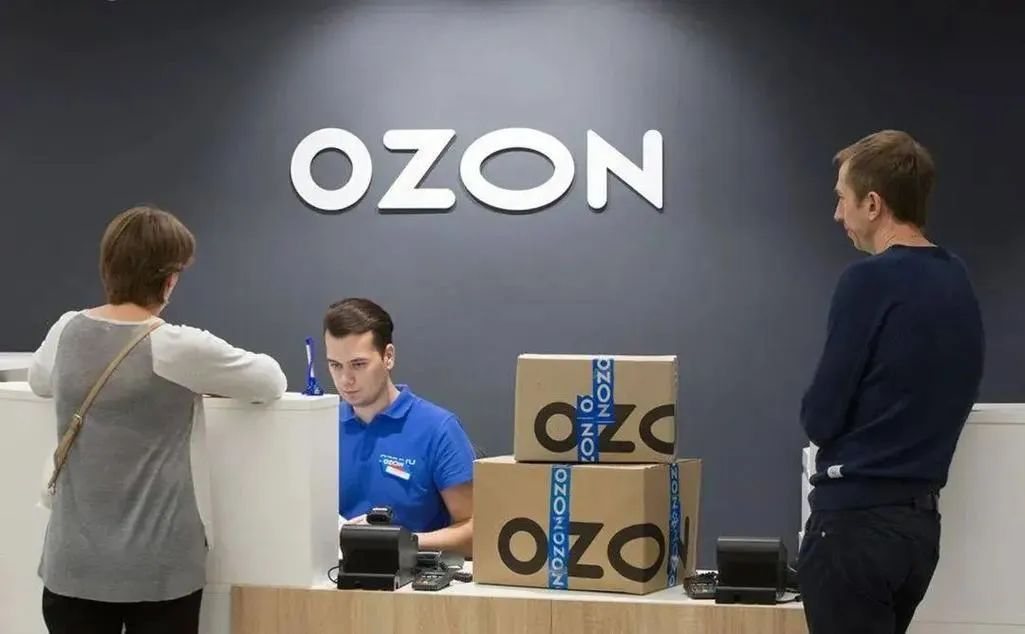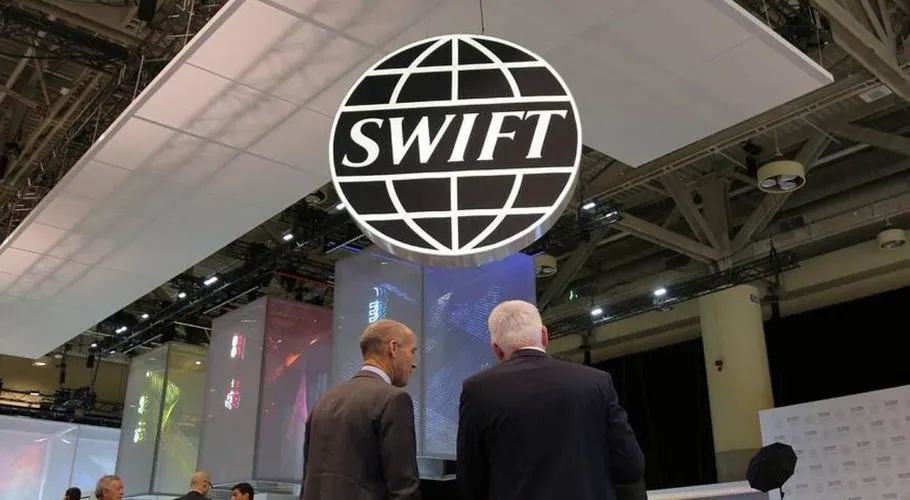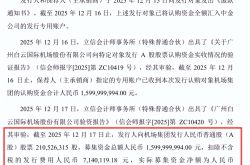Chinese e-commerce merchants, 'invading' Russia
![]() 08/29 2024
08/29 2024
![]() 623
623

Author|Sun Pengyue
Editor|Da Feng
Cross-border e-commerce has become increasingly challenging in the second half of 2024.
The European and American markets are firmly controlled by Amazon, with increasingly stringent audits. Chinese sellers risk being banned from the platform with even the slightest mistake, leaving them to rely on TikTok live streaming to open up new opportunities.
Price wars in Southeast Asia have left the market in shambles, with both established players like Shopee and Lazada, as well as new challengers like TikTok and Temu, struggling to turn a profit.
South America boasts a vast market, with Brazil and Argentina being populous countries. However, the long distance from China poses a significant challenge, especially in terms of logistics, which can deter many new players.
The Middle East and Africa are still relatively immature markets, requiring significant time and effort to develop both the market environment and consumer education.
After surveying various regions, it appears that the only profitable cross-border e-commerce market is surprisingly our neighbor: Russia.
01
'Russian Scalpers' in the New Era
China has a 'long history' of doing cross-border business in Russia, albeit under a different name decades ago: scalpers.
In the 1990s, following the collapse of the Soviet Union, countless scalpers relied on traditional trading methods, physically carrying goods on their backs and in their hands, to transport large quantities of domestic surplus commodities to Moscow.
The 9,000-kilometer railway line from Beijing to Moscow via Manchuria echoed with the enthusiastic slogans of these scalpers: 'Earn a Mercedes-Benz in a week, trade a truckload of watermelons for a plane.'
This 'primitive yet spectacular' mode of trade soon faded before the rise of the internet age. However, history repeats itself, and now these scalpers are leveraging the internet to engage in cross-border e-commerce.
According to the financial report of Ozon, one of Russia's largest e-commerce platforms, its turnover reached 633.2 billion rubles (approximately $7.43 billion) in the second quarter of 2024, a year-on-year increase of 70%.
With this rapid growth, Russia has surpassed the entire Southeast Asian region to become the country with the fastest-growing online retail sales in 2023.
The answer lies in the fact that the entire Russian e-commerce market is rapidly being dominated by Chinese merchants.
Reports from Data Insight and GBS indicate that in 2023, China accounted for 90% of Russia's online imported goods sales, totaling 313 billion rubles, and 98% of the 174 million orders.
Since the outbreak of the Russia-Ukraine conflict in 2022, global attention has focused on this troubled land. The United States and its European allies have imposed up to 12 rounds of economic sanctions on Russia, aiming to weaken its economy by severing its financial, technological, and supply chains, ultimately seeking to collapse the Russian economy.
As a result of these sanctions, Amazon and AliExpress, originally Russia's top e-commerce platforms, were forced to shut down, and even the use of the Russian ruble as a currency was suspended.
The collapse of e-commerce platforms led to the withdrawal of numerous European and American, as well as Japanese and Korean, brands from Russia, creating significant gaps in product availability. Even Coca-Cola had to be imported through third countries, with prices soaring severalfold. The vacancy rate of shopping centers across Russia is expected to reach 15-20%, posing a significant economic burden on the country.
Therefore, Russia urgently needs Chinese sellers and products to fill these gaps.
After all, even without Coca-Cola from the United States, Russian consumers can still satisfy their taste buds with China's Beibingyang soda.
Beyond daily necessities, China's automotive exports to Russia have also made significant strides. Before the Russia-Ukraine war in 2021, Chinese auto brands sold a total of 115,700 vehicles in Russia, accounting for approximately 7% of the market. By 2023, this figure had surpassed 500,000 vehicles, with a market share close to 50%.
While the sanctions imposed by Western countries have put pressure on the Russian economy, they have also presented significant market opportunities for Chinese enterprises.
02
Risks and Opportunities Coexist
Russia represents an ideal market for cross-border e-commerce due to its large population (ranking ninth globally with 140 million people), rapid growth, favorable policies, and the absence of European and American competitors.
According to China Customs, China's cross-border e-commerce exports to Russia reached 84.6 billion yuan in 2023, a year-on-year increase of 91%, significantly outpacing growth in the United States, the United Kingdom, and Germany. As a result, Russia has become China's fourth-largest export destination for cross-border e-commerce, trailing only these three countries.
Russian e-commerce platforms also warmly welcome the entry of Chinese merchants. Ozon, the e-commerce platform mentioned earlier, began recruiting Chinese sellers in large numbers in 2021, even setting a goal of attracting 100,000 Chinese sellers by 2024 and expanding Chinese product transactions tenfold.
Relying heavily on Chinese sellers, Ozon has officially become Russia's second-largest e-commerce platform, tied with Wildberries.
Given the favorable policies and platforms, entering the Russian market is relatively straightforward. However, challenges such as an unstable market environment, complex tax systems, and unpredictable payment cycles persist.
Firstly, logistics pose a significant challenge.
Both Ozon and Wildberries generally prohibit cross-border sellers from using overseas warehouses for shipments, requiring them to operate either as cross-border stores or local stores.

Ozon E-commerce Platform
In simple terms, a cross-border store holds inventory in China and ships products to Russia via cross-border logistics upon order. A local store, on the other hand, requires a Russian citizen as the legal representative to establish a warehouse in Russia, enabling direct shipments from within the country upon order.
While cross-border stores appear friendly to Chinese sellers, they come with numerous restrictions. Certain categories, such as liquids, electronics (pure batteries), and powders, are not supported by cross-border stores.
Since June 26, 2024, Ozon has announced restrictions on sales of electronics, automobiles, motorcycles, and DIY tools for Chinese cross-border sellers in these categories.
In essence, Russian e-commerce platforms prefer local stores that ship from Russian warehouses, offering faster delivery times of 1-3 days compared to the potentially lengthy cross-border delivery times of up to a month for cross-border stores, which can be detrimental to after-sales management.
Products from local stores can be directly returned to Russian warehouses via express delivery, while cross-border stores must choose between returning products to China, picking them up from warehouses, delivering them to other addresses within Russia, or destroying them. All these options involve significant return costs exceeding the value of the goods themselves.
Choosing between a cross-border store and a local store has become the first hurdle for Chinese e-commerce merchants in Russia.
03
Difficulties in Receiving Payments Amid Sanctions
Beyond logistics, payment issues pose the most critical challenge for cross-border e-commerce in Russia.
In March 2024, Ozon faced a significant 'payment crisis.'
Ozon announced that due to new banking regulations affecting payment processes, there might be delays in fund transfers to seller accounts.
These delays stretched for three months. To allay sellers' concerns, Simon Huang, President of Ozon Greater China, recorded a video explaining that the payment delays were caused by banking compliance review processes and were unrelated to Ozon's financial situation, which remained unaffected. Ozon also offered affected sellers additional benefits, including free advertising credits and extra product discounts, to boost exposure and sales in subsequent sales cycles.
Many Chinese sellers, however, were unconvinced by Huang's explanation of banking compliance processes. The widely accepted reason within the industry is that due to sanctions imposed by Europe and the United States, some Russian banks have been excluded or are at risk of being excluded from the international settlement system SWIFT.
SWIFT plays a crucial role in the global market. When Russian buyers purchase Chinese products, Russian banks use SWIFT to send standardized payment instructions to Chinese banks.
Without SWIFT, significant foreign exchange reserves could be frozen, and Chinese banks would hesitate to accept funds from alternative channels originating in Russia due to the risk of secondary sanctions.

SWIFT
Moreover, SWIFT affects the entire Russian ruble currency system, not just Ozon. Another e-commerce giant, Wildberries, also reported difficulties in binding bank cards to its platform in June 2024, likely due to the platform's inability to resolve payment chain issues.
Payment issues have become the Achilles' heel of cross-border e-commerce in Russia, with no e-commerce merchant willing to risk their own funds.
Despite Russia's advantages in terms of population and the absence of European and American competitors, cross-border e-commerce in the country faces risks related to the market environment, tax systems, and payment cycles.
Whether Russia represents a 'promised land' or an upcoming 'red ocean' for cross-border e-commerce merchants remains to be seen, requiring careful and long-term observation.






